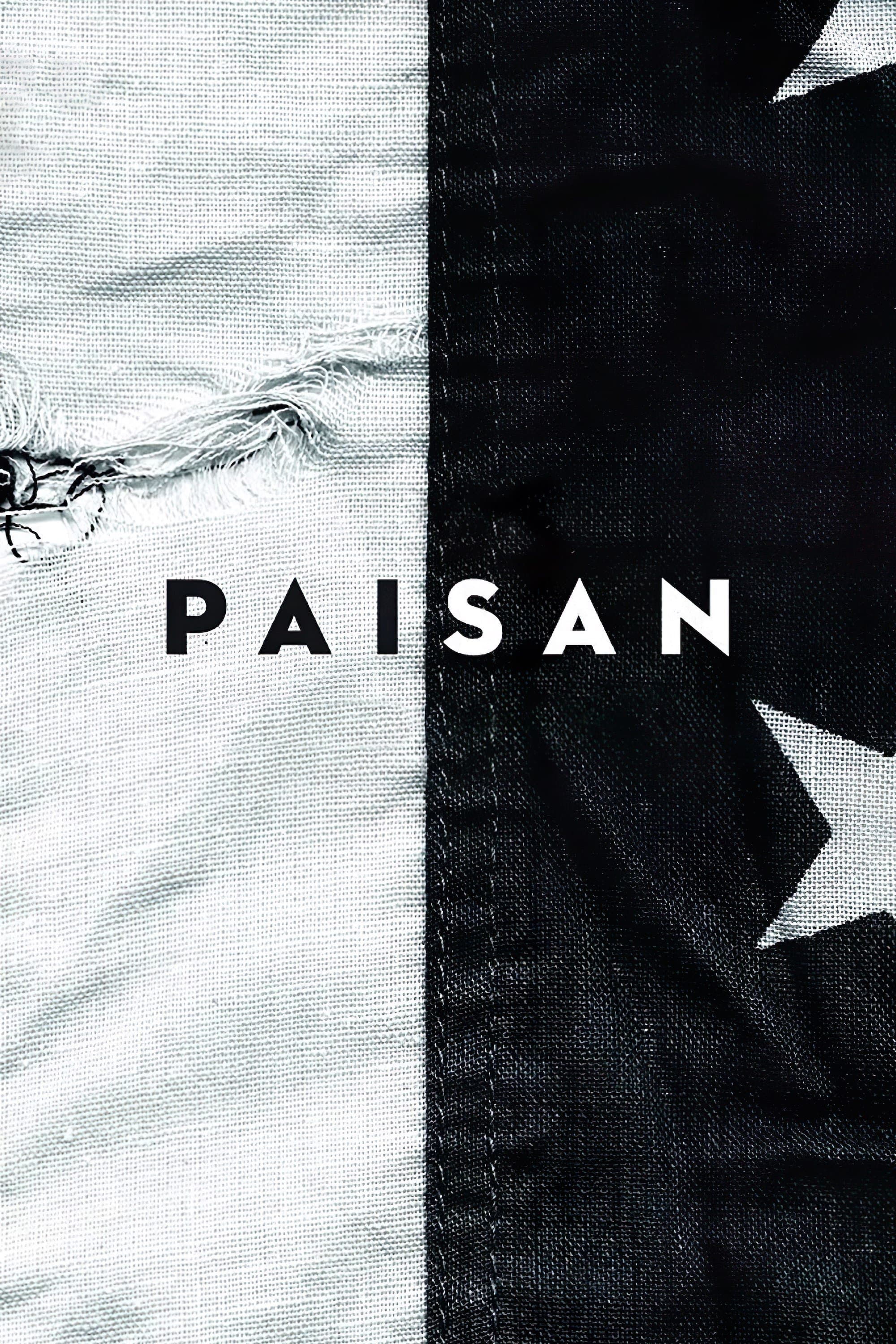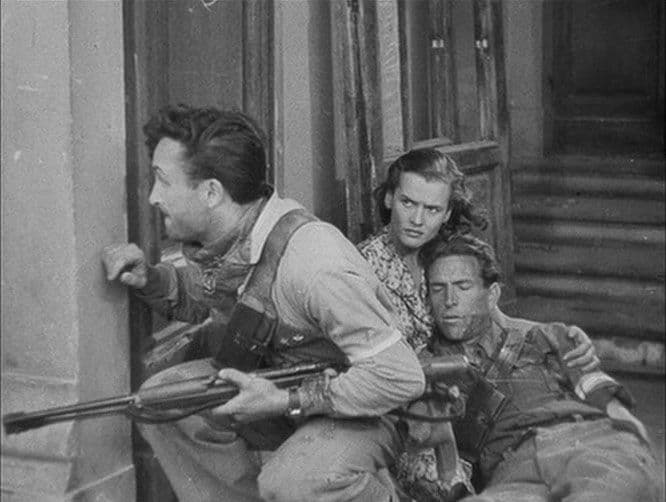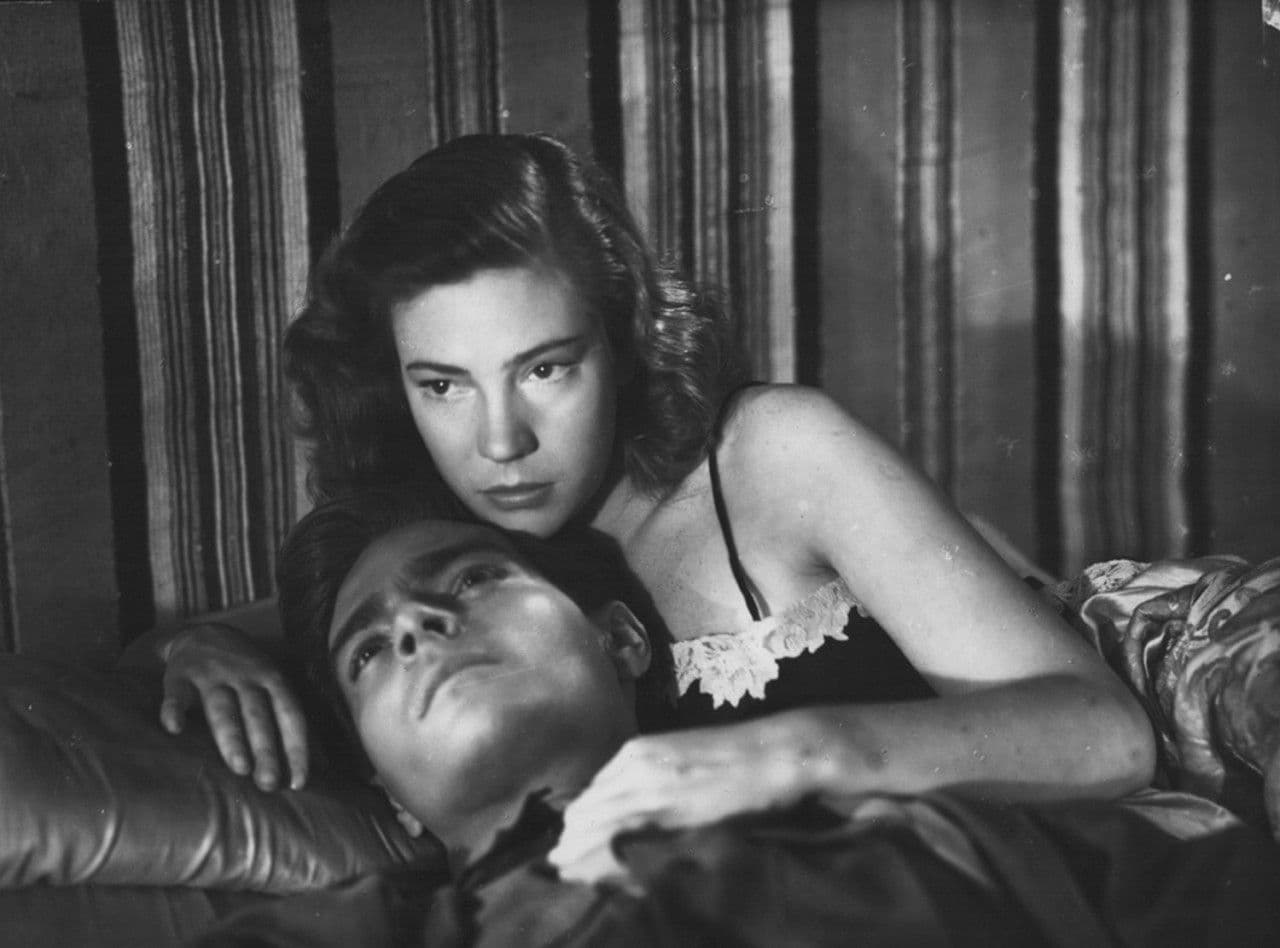
Paisan
1946
Rate this movie
Average: 0.00 / 5
(0 votes)
Director
One of the pinnacles of Italian neorealism, "Paisà" is a film that does not merely bear witness, but becomes the very flesh and spirit of an era, achieved by a Rossellini who breaks down the image of reality as if through a prism. This prismatic approach is not merely a stylistic choice, but an acute narrative strategy to capture the fragmentation of a country in disarray, a human and geographic mosaic that was reassembling, or attempting to do so, under the weight and impetus of the Allied advance. Far from the triumphalist epic of certain war cinematography, Rossellini, with the clarity of a chronicler and the sensitivity of a poet, delivers not a single story, but a choral epic in six movements, each a gem of authenticity.
He derived six episodes, all shaped by the narrative force and the pens of writing giants such as Sergio Amidei, Vasco Pratolini, Marcello Pagliero, Alfred Hayes, and the then very young and brilliant Federico Fellini, whose grotesque and profoundly human vision already emerged amidst the folds of the drama. This collaboration, though heterogeneous in individual sensibilities, converges into a single, powerful authorial vision, unified by Rossellini's masterful direction. These chapters, distinct yet intrinsically linked by an invisible thread of suffering and resilient humanity, stand as authentic bas-reliefs: not panoramic frescoes, but details sculpted with almost documentary precision, vibrant snapshots of a nation that, from the ravaged south of a Sicily still trembling under bombs, to the north yearning for liberation, changed its skin day by day.
All the stories can be considered frames, vignettes of a reality that was rapidly changing with the Allied advance from south to north. From Palermo to the Po, Rossellini maps the peninsula, following the rhythm of the liberating march. Each story recounts events linked to that triumphant advance; each story is made of simple people who, struggling with a life of hardship, find a kind of redemption in the victories of the liberating army. And it is precisely here that the film unfolds its deepest complexity: "liberation" is never a singular or simple concept. The encounter between American soldiers, often naive or superficial in their perception of Europe, and the Italian population, tried but dignified, generates a kaleidoscope of misunderstandings, small tragedies, fleeting moments of solidarity, and even new forms of exploitation.
Consider the Neapolitan episode, where the young scugnizzo Pasquale steals shoes from a drunken African-American soldier, only to then feel a touching, almost incomprehensible, form of pity; or the Roman one, where the prostitute Francesca deludes herself into believing she can regain lost innocence through the soldier Fred, who doesn't recognize her, blinded by his own idealism; up to the dramatic climax in the Po Delta, where the partisan resistance and the Allies fight side by side against the Nazi-fascists, in a brutality that sweeps away all illusion of easy redemption. The film avoids any triumphalist rhetoric, showing that war does not end with the signing of peace, but continues to resonate in shattered lives and broken hopes.
Above all, there is Rossellini’s severe yet loving gaze, which does not compromise with metaphor but films reality and transposes it unaltered onto film. This almost obsessive fidelity to the "real" is the stylistic hallmark of the purest Rossellini. He rejects dramatic artifices, the formal acting of professional actors (often favoring faces taken from the street), and reconstructed studio sets. "Paisà" was shot entirely on location, often with a minimal crew, in precarious conditions, capturing the true dust of the streets, the real sunlight, the authentic weariness on faces. It is no coincidence that the French Nouvelle Vague, with directors like Jean-Luc Godard and François Truffaut, looked to Rossellini as a master and a liberator, admiring his ability to break narrative conventions and to make life breathe on screen with unprecedented freedom. His camera is not a judgmental eye, but an instrument of inquiry, almost scientific in its recording of facts, yet imbued with a profound and moving humanity. It is a cinema that does not explain, but shows, leaving the viewer to draw their own conclusions, to confront an uncomfortable and multifaceted truth.
A film that is reality itself, therefore, with a speculative process that begins and concludes with images of unique power. Its importance transcends mere historical cataloging, rising to an ethical and artistic manifesto. "Paisà" is not just the chronicle of a liberation, but a reflection on the nature of man in extreme circumstances, on the linguistic and cultural barriers that hinder mutual understanding, and on the human spirit's capacity for resilience. Its resonance is eternal, a cinematic monument that continues to speak with the same raw and disarming honesty as when it was made, not only as an indispensable document of Italian neorealism, but as one of the absolute pinnacles of world cinema. Its strength does not lie in formal perfection, but in its radical, almost brutal, authenticity, which still prompts us today to question the meaning of freedom, suffering, and survival.
Main Actors
Country
Gallery




Comments
Loading comments...